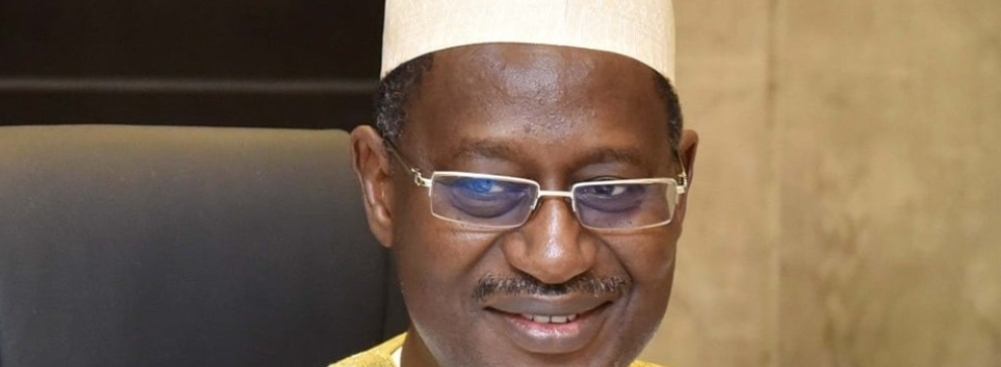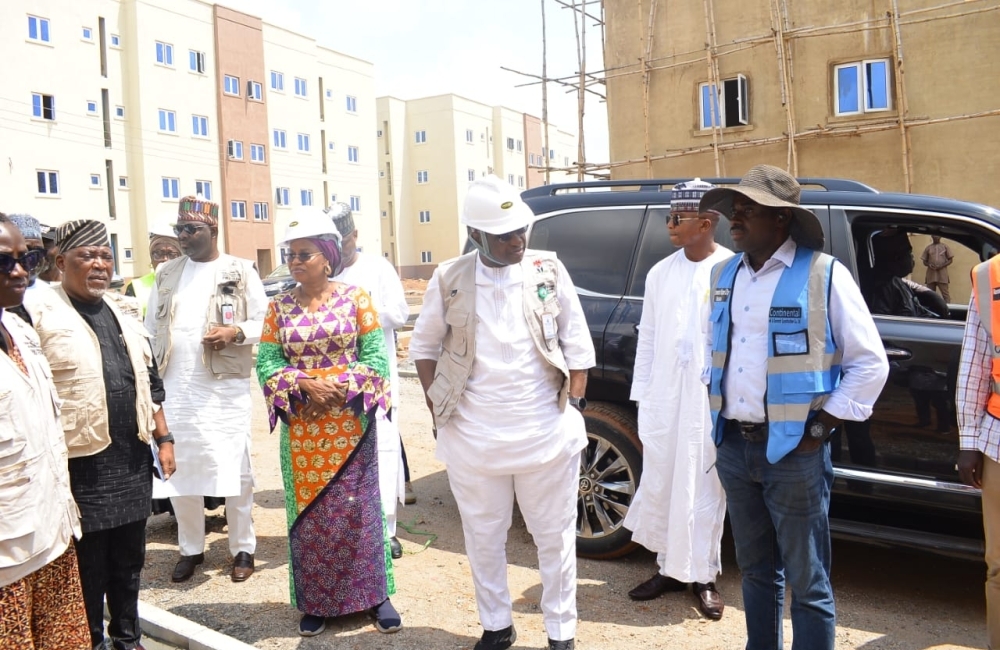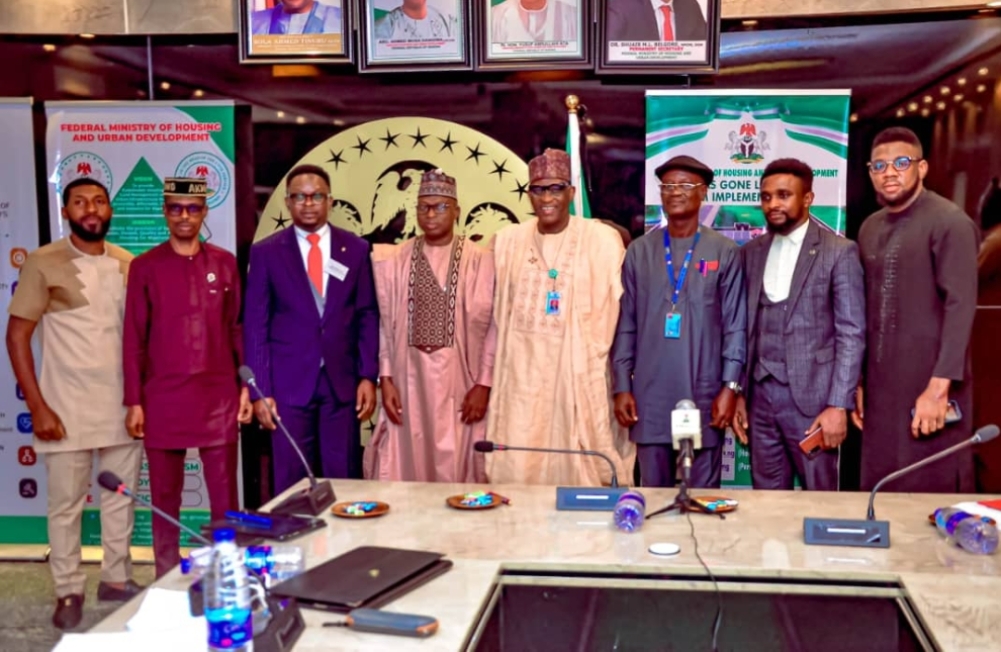
SPEECHES

KEYNOTE ADDRESS BY THE HON. MINISTER OF HOUSING AND URBAN DEVELOPMENT AT THE 20TH EDITION OF MORTGAGE BANKING SUB-SECTOR CEO’S ANNUAL RETREAT AT THE TRANSCORP HILTON, ABUJA, ON SATURDAY, 2ND DECEMBER 2023
Protocols
1. First, I would like to commend the leadership of the Mortgage Banking Association of Nigeria (MBAN) for sustaining this Annual CEO Retreat.
2. Each year this Retreat provides a platform for CEOs of Mortgage Banks, Mortgage Brokerage Companies, Statutory Regulatory Bodies, Federal and State Governments/Policy Makers and other housing industry stakeholders to gather, network, share experiences, discuss sector challenges to produce clear recommendations that border on effective housing delivery in the country.
3. These Retreats are important because they help in the cross pollination of industry experiences, ideas, and knowledge critical to sharpening government policy on sustainable housing delivery in our dear country.
4. This 2023 edition is the 20th in the series, and I am happy to be here to address you for the first time as the Minister of Housing and Urban Development.
5. However, I am pained to note that the same problems that have been militating against the growth of housing finance, mortgage adoption and housing delivery in this country and have been the points of discussion at every one of the previous 19 editions are the same ones that still plague the sector today.
6. While preparing for this Keynote Address, I recalled a paper titled “Mortgage Banking/Housing Finance Sector in Nigeria: Past, Present and Future” presented by the former MBAN Executive Secretary, Mr. Kayode Omotosho in 2011 – 12 years ago. That was years before I became the MD/CEO of FMBN in 2017 and began attending these Retreats.
7. In the paper he listed the following as the major constraints bedeviling the industry and I quote:
• Affordability gap in home ownership
• Dearth of long-Term Funds
• Critical Need for Enhanced Capital and Resource Base of Primary Mortgage Institutions (PMIs) and the Federal Mortgage Bank of Nigeria (FMBN)
• Difficulty in accessing Land and secure title to Land due to the shortcomings in the provision and implementation of the Land Use Act of 1978.
• Inadequate Legal Framework
• Inadequate Housing Infrastructure
• Inadequate incentives, concessions and taxes and non-availability of insurance Framework
• Insufficient production and high cost of building materials as well as inadequate skilled labour.
• The critical need to significantly grow the contribution of the entire Mortgage Banking/ Housing Finance Sector to the Nation’s Gross Domestic Product (GDP) which was put at 0.38%, compared to other Countries such as South Africa and Malaysia with an average rate of 40%.
Mr. Kayode in that paper went on to list the following key success factors. First was expedited action to review mortgage related laws. This includes:
• The Land Use Act 1978
• The National Housing Fund Act 1992
• The Mortgage Institutions Act 1989
• The Federal Mortgage Bank of Nigeria Act 1993
• The Trustee Investments Act 1962
• The Nigeria Social Insurance Trust Act 1993
• The Insurance Act 2002
• The Investments and Securities Act 1999
• The Federal Housing Authority Act 1990
• Securitization Bill
• Foreclosure Laws Bill (Residential Mortgages Act & Residential Mortgages (Incentives) Act
• Others included the need to reduce cost of title perfection, improving access to long-term funds, computerization of land registry offices, capitalization of Primary Mortgage Banks (PMBs) and the Federal Mortgage Bank of Nigeria (FMBN).
8. Now, fast forward to 2023, and you will agree with me that not much has changed. Most of these problems are still with us. The National Housing Strategy Report developed in collaboration with FMDQs and launched by the previous administration cited just about the same problems. The report lists land, infrastructure deficit, high housing construction cost, household demand (which means the ability to pay and willingness to pay), and lack of affordable housing financing options.
9. It is therefore against the backdrop of these recurring conversations and growing industry challenges that the theme for this year’s Retreat “Advancing Sustainable and Affordable Housing in Nigeria: Navigating Macro-Economic, Legislative, and Policy Frontiers” is so apt.
10. This is because the theme emphasizes the need for all players to find ways to NAVIGATE the macro, legal and policy bottlenecks. This speaks to the need for innovation. It speaks to the need for creativity. And it speaks to the need for effective leadership at every point in the value chain. This is because leaders are supposed to make progress despite challenges. Leaders are supposed to navigate the complexities of situations to make progress.
11. I make bold to say that even in the midst of these persistent challenges, it is possible to make progress. As the MD/CEO of the Federal Mortgage Bank of Nigeria, we were able to innovate despite challenges to post results in five years that surpassed the 25-years before we came on board.
12. I am well aware that the cost of funds is a major macro-economic issue that has made the interest rate on commercial mortgages so high, thereby affecting affordability. This is an issue that reflects the state of the national economy and I want to assure you that the Renewed Hope Vision of His Excellency, President Bola Ahmed Tinubu, GCFR is particular about growing the economy and creating a more friendly environment that would support the growth of the sector.
13. So, while the government works to fix this macro-economic challenge, I still believe that as CEOs of mortgage banks, you can still find creative ways to develop innovative mortgage products that are responsive to the current state of Nigeria’s economic situation. This includes adopting rent to own mortgage options, flexible monthly mortgage loan repayments to make commercial loans more affordable.
14. I note with concern that the Capital Market has not been maximally tapped to raise long term funds to refinance mortgage loans and to explore more creative ways to make mortgages more affordable even as we work to fix the larger macro-economic problems. As leaders, we must not only see provision of housing and home loans from a business and profit motive, but also see expanding access to affordable mortgages as a moral imperative. So, we must do all we can even in these difficult times to ensure that not only the elites, but Nigerians within the low- and medium-income segments have access to affordable mortgages.
15. On the government side, the message that I bring from His Excellency, President Bola Ahmed Tinubu, GCFR, is that he is ready to break the jinx of macro-economic, legislative and policy issues that have held down the growth of effective housing delivery in our country. He is ready to work with all stakeholders including MBAN to implement a holistic housing reform program to chart a new, progressive, and innovative path forward for the mortgage sector.
16. Under the Renewed Hope Agenda of Mr. President, our goal is to ensure that as years go by, we are systematically tackling all these persistent issues and consigning them into the annals of history so that we can ensure increased access to affordable housing for Nigerians.
17. As the Minister of Housing and Urban Development we aim to implement the most historic housing sector reforms the country has ever witnessed.
18. A notable part is the implementation of comprehensive land reforms towards streamlining land administration and ensuring easy, cost effective and efficient access to land in our country.
19. We have composed and secured Presidential consent to inaugurate a land reforms team comprising state governments, traditional rulers, relevant agencies, professional bodies, academia, industry experts to ensure buy-in and inclusivity.
20. With their recommendations we will draft an Executive Bill and proceed to the National Assembly for the amendment of the obsolete Land Use Act 1978 that has hindered the development of the housing sector.
21. In line with our policy of building on existing knowledge so we can move at a faster pace to deliver value, we recently invited and met with the Presidential Technical Committee on Land Reforms. And I must say that it was a wise decision to do so. This is because we now have access to the comprehensive work, they have done over the past 14 years on Land Reforms in our country. Immediately after the meeting we set up an Internal Ministerial Committee to review and recommend for inclusion in our land reforms strategy relevant parts of their recommendations. Part of this will be the establishment of the National Land Commission to spell out the guidelines and regulations for operationalizing the Land Use Act, 1978.
22. Currently, we have a situation where the Land Use Act was enacted but there was no complementary institution set up alongside it to provide the necessary framework, guidelines, and regulations for operationalizing it.
23. This will improve land titling and boost Nigeria’s ranking on the World Bank Ease of Doing Business where we currently rank 186th out of 190 countries.
24. The second related reform is the nationwide adoption of the Model Mortgage Foreclosure Law. The law is a housing industry stakeholder initiative that is focused on establishing an enabling environment for investment in real estate and the growth of mortgages. It provides contemporary provisions on the creation, registration, and enforcement. I must recognize and commend the critical role that MBAN has played in this regard.
25. As of date, the Model Mortgage Foreclosure Law (MMFL) has been passed in only four (4) States, including Lagos, Kaduna, Ekiti, and Nasarawa States. We aim to drive its passage in all the states of the federation as part of the efforts to ensure that investments in the housing and mortgage sector are protected.
26. We have also composed and secured presidential consent to inaugurate a Housing Institutions’ Reform Team comprising relevant agencies of Government, Professional/Regulatory Bodies, Academia, and Industry Experts to review some aspects of the existing laws listed below to align them with contemporary realities.
• The Land Use Act, 1978.
• National Housing Fund (NHF) Act, 1992.
• Federal Mortgage Bank of Nigeria (FMBN) Establishment Act, 1993.
• Federal Housing Authority (FHA) Act 1973.
• PenCom Act (to allow for increased investment in housing development); and
27. I am happy to say MBAN has been included in the membership of our Reform Teams.
28. The reforms and legislative amendments that the Housing Institution’s Reform Team will execute in collaboration with stakeholders and the National Assembly will be the most comprehensive set ever done in the history of Housing and Urban Development in Nigeria.
29. We are also working to boost building materials manufacturing in the country. This will ensure economic growth, create jobs, and reduce dependency on imports. On this too, we have composed a Building Materials Manufacturing Task Team comprising of experts and representatives from relevant government agencies, academia, professional bodies, and industry experts. They will conduct a thorough assessment of the current state of the building materials manufacturing sector and produce a strategic reform plan for implementation.
30. To increase the stock of housing supply, we have also composed and will inaugurate a Multi-Agency Project Delivery Team. The Team will ensure that all housing agencies work together towards optimizing their capacities to deliver decent and affordable housing to Nigerians. It comprises highly qualified and experienced professionals with expertise in housing development, urban planning, infrastructure, finance, and project management.
31. Our Renewed Hope Cities and Estates Program seeks to deliver 40,000 housing units ranging from 1,000 housing units per site in one location in each of the six geo-political zones of the country and FCT namely: Abuja, Lagos, Kano, Borno, Nasarawa, Rivers, and Enugu States. House types will include Multi-Level Flats to cater to low-medium income earners, Terrace and Detached Bungalows and Duplexes for the high-income earners. We will also have Renewed Hope Estates of 500 housing units per site in each of the remaining thirty (30) States. House Types include 1,2- and 3-bedroom affordable units.
32. The projects will be financed by the Federal Ministry of Housing and Urban Development’s budgetary allocation, the Federal Mortgage Bank of Nigeria (FMBN), and majorly through Public Private Partnerships with reputable developers. Ownership Options include Mortgage Loans, Rent-to-Own and Outright Purchase.
33. We are also working to comprehensively upgrade our slums and embark on urban renewal. Under Phase 1 of the Slum Upgrading Programme, the Ministry plans a total of 26 sites nationwide. This includes four (4) sites in each of the six regions of the country totaling twenty-four (24) and two (2) in the FCT. The key services to be provided at the identified sites will include water supply, solar streetlights, rehabilitation of access roads, construction of drainages and waste management and sanitation services amongst others.
34. It is important for me state that MBAN will be part of the offtake solution for these housing units at two levels. One as partner banks to the FMBN as retail outlets for NHF loans and as a partner to explore other commercial mortgage financing options especially through the capital market.
35. Like I said earlier, as the Minister of Housing and Urban Development, I will continue to work closely with MBAN towards ensuring that all the issues that affect the development of the sector receive the highest consideration and treatment. I look forward to receiving the communique on the important resolutions and recommendations from this Annual Retreat for review and possible inclusion in our housing reform strategy.
36. Together we can make progress. Together we can break barriers and unleash the potential of the housing market for economic and social transformation in Nigeria.
37. I wish you all fruitful deliberations.
38. Thank you.
PHOTO NEWS

INSPECTION OF THE KARSANA, ABUJA FCT RENEWED HOPE CITY PROJECT BY THE PERMANENT SECRETARY, MINISTRY OF HOUSING AND URBAN DEVELOPMENT, DR SHUAIB BELGORE, FRIDAY, OCTOBER 24TH, 2025.
Inspection of the Karsana, Abuja FCT Renewed Hope City Project by the Permanent Secretary, Ministry of Housing and Urban Development, Dr Shuaib Belgore, Friday, October 24th, 2025.
PHOTO NEWS

HON MINISTER OF STATE, RT HON ABDULLAHI ATA AND PERMANENT SECRETARY, DR SHUAIB BELGORE IN A MEETING WITH THE DELEGATION FROM THE UNIVERSITY OF UYO, CENTER FOR SKILLS ACQUISTION AND RURAL DEVELOPMENT AT THE CONFERENCE ROOM OF THE MINISTRY, MABUSHI, ABUJA
Hon Minister of State, Rt Hon Abdullahi Ata and Permanent Secretary, Dr Shuaib Belgore in a meeting with the delegation from the University of Uyo, Center for Skills Acquistion and Rural Development at the Conference room of the Ministry, Mabushi, Abuja










